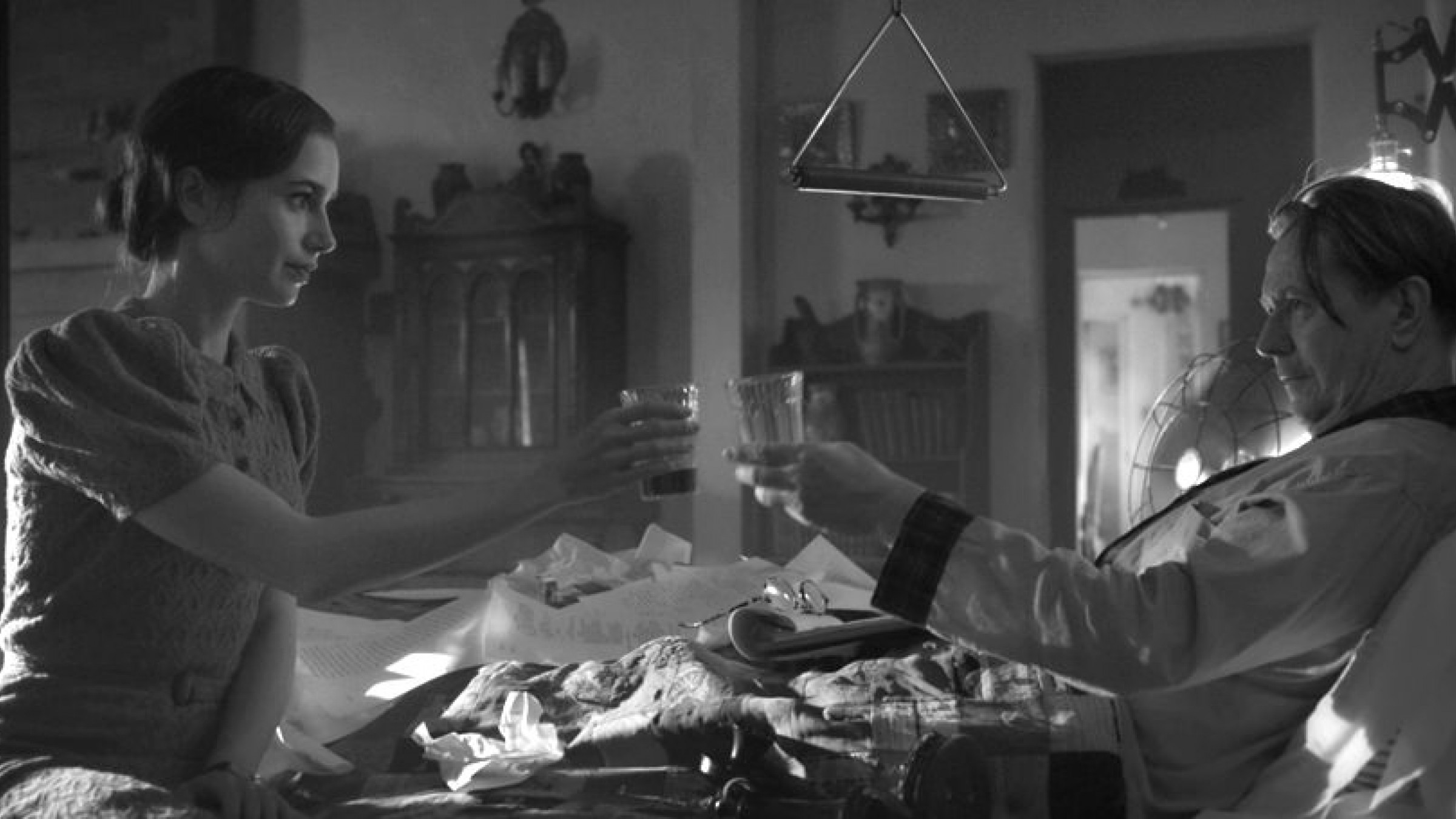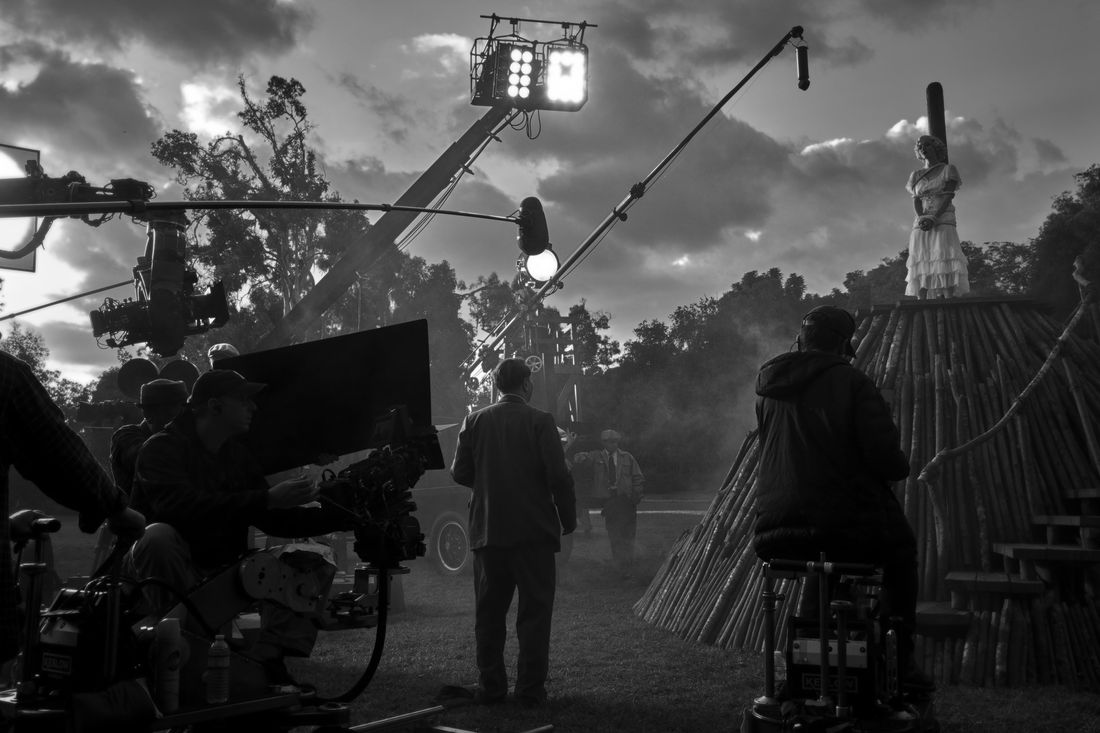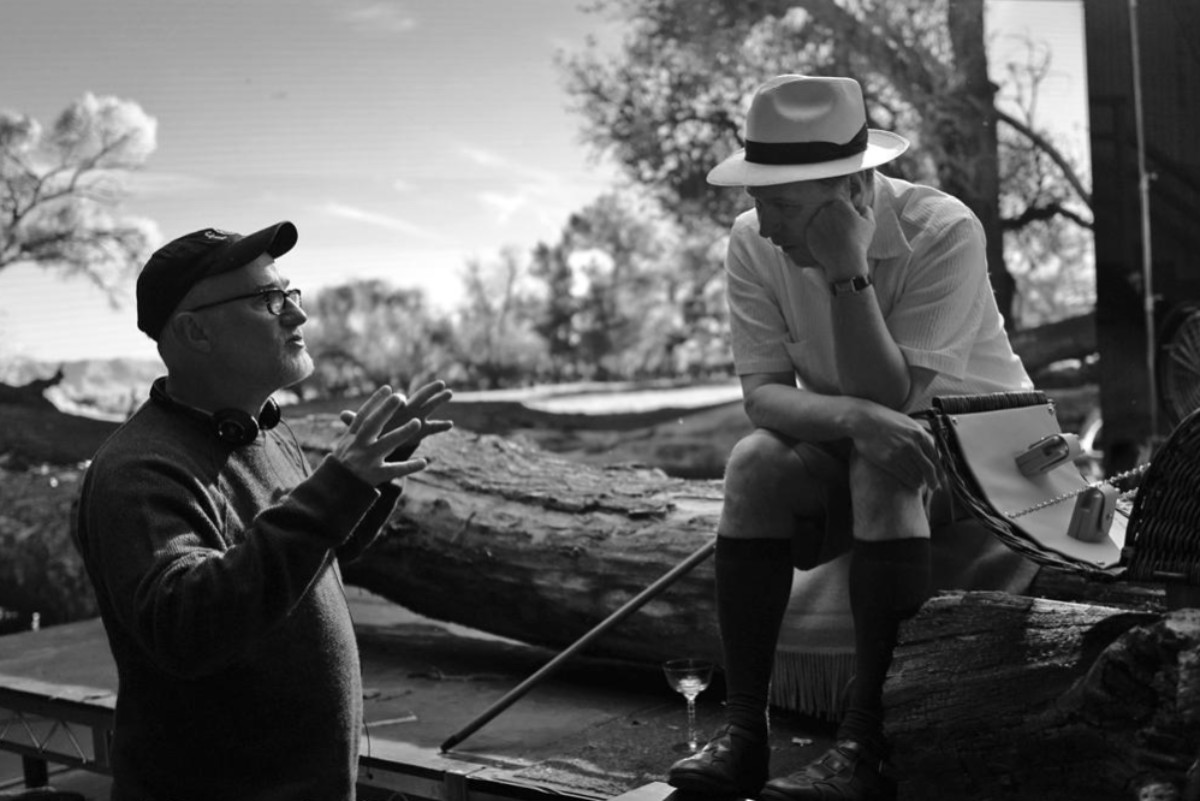“You cannot capture a man’s entire life in two hours. All you can hope is to leave the impression of one.”
It’s been six years since his last film, but David Fincher is back with another film designed to keep you up late at night pondering its many meanings and underlying themes and messages. He’s hitting closer to his own home this time, that being Hollywood and its evolution, or lack thereof it may seem.

While it’s true that Hollywood is a different landscape with films being produced in masses for more and more money, with little studios like Blumhouse and A24 taking the lead in some instances, there are still elements leftover from it’s pre-Golden era. Mank uses the eyes of its titular character, Herman J. Mankiewicz, or rather his mouth to guide us through old Hollywood’s landscape and it’s misgivings.
David Fincher’s Mank follows the aforementioned Mankiewicz, played by Gary Oldman in what will undoubtedly be recognised as a career defining performance, as he rushes to complete the screenplay for Citizen Kane for young filmmaker Orson Welles.
Welles has been given any young filmmaker’s dream at the age of 24, a movie with no budget limitations about whatever he wants. In comes our Mank, 20 years his senior and bed bound after a car accident leaves him unable to walk, to write the script that would eventually become what many consider “the greatest movie ever made.” With the assistance of young Rita Alexander (played by Lily Collins) and Fraulein Freida (Monika Gossman), Mank races against Orson Welles’ imposed 60 day deadline for a first draft of a screenplay, including a fight for credit, and a war to stay relevant in a forever evolving system.

Mank jumps back and forth between the 1930’s and the year 1940 for the majority of the film, weaving in the “present” and the past as we build to understand who our Mankiewicz is and what he stands for, as well as his reputation amongst his peers. Our introduction to a younger Mank is when a new associate writer stumbles across his writing team playing quarters in their offices. In one of the film’s best scenes, one of two it’s kind, the team walks into a meeting that is supposed to be about a film that they’ve created over the past few weeks, but they instead pass a proverbial baton around the room and create the pitch one sentence at a time. What’s crazier than that, is the studio buys it.
Such is the talent of Mank, whose blackout drinking, gambling and scathing social criticism defined his approach to his peers, while his work is rather benefitted by his surroundings and outlook on life. His relationships with his fellow Hollywood elites are those that come to define the contents of his final screenplay, and those connections play out similar to the way Citizen Kane weaves through the life of Charles Foster Kane.
This film’s direction is where it shines the brightest. In Fincher’s 11th turn behind the camera he showcases that he is indeed at the height of his powers, a height that seems to have been present for the last 25 years of his career. With every detail meticulously crafted to match the time period this story is pulled from, there is a transparent amount of respect that he has for his subjects.
How Fincher and Oldman work together to pull the emotional strings of the audience is fascinating too. The wit of Mank is by far one of his most defining traits, and it’s used a lot for humour, but a lot for sadness too.

One of the best scenes in the film is at a dinner party that Mank rocks up drunk to. He walks in, pitches a loose version of Citizen Kane for the very first time in the style of Don Quixote (which any cinephile will notice is another of Orson Welles unfinished projects) in order to belittle the hosts of the gathering. It’s entirely hilarious, but the reaction of Marion Davies (played by Amanda Seyfired) speaks volumes of humiliation. Not to mention he vomits everywhere at the end of his speech.
The screenplay is another standout performer in the film. While dry in parts, it serves some jokes and quotable one liners that had the older people in the theatre giggling as well as myself in parts too. Its ferocity in taking on the subject at hand is admirable, diving head first and blindfolded into a world that at times feels beyond our own.
It was written by Jack Fincher, David’s late father, back in the mid 90’s and was intended to be Fincher’s follow up to The Game. It never went ahead as Fincher insisted on the black and white aesthetic, though it was set to star Kevin Spacey and Jodie Foster, both of whom have worked with Fincher in the past. Instead, we got Fight Club. Yeah, you tell me which one you’d rather have.
There’s a lot to say about Mank, and too much to explore in a short review like this one. It’s layered complexities will be discussed on the same plain as the rest of Fincher’s immaculate catalogue, and while it serves as one of his least accessible films to the general public, this doesn’t feel like it was made for them. Fincher invites you to explore the politics of the Studio-era landscape and watch as we discover how the movies were made back in the day, and how one man’s life resulted in the greatest movie of all time.
Mank is currently screening in select theatres for a limited time, and is set to be released on Netflix on December 4. Check out the trailer here:
Subscribe to FIB’s Weekly Alchemy Report for your weekly dose of music, fashion and pop culture news!






